On June 4, 2025, as part of the International Social Housing Festival (ISHF) in Dublin, Patricia Astorgano Rodera, Project Manager at Codema, Dublin’s Energy Agency, delivered an inspiring talk on the future of urban regeneration. This session took place within the framework of the Final Conference of the Horizon Europe project drOp : ‘More than Renovation: Neighbourhood Regeneration‘.
The session explored how art and culture, community engagement, and digital innovation can help shape more inclusive and sustainable neighbourhoods across Europe.
The REGEN project and the Dublin pilot

Patricia’s contribution focused on Codema’s role in the REGEN project (which brings together four pilot sites including Dublin, Milan, Laredo, and Beckerich) to test tools and methodologies that support holistic and citizen-driven urban transformation.
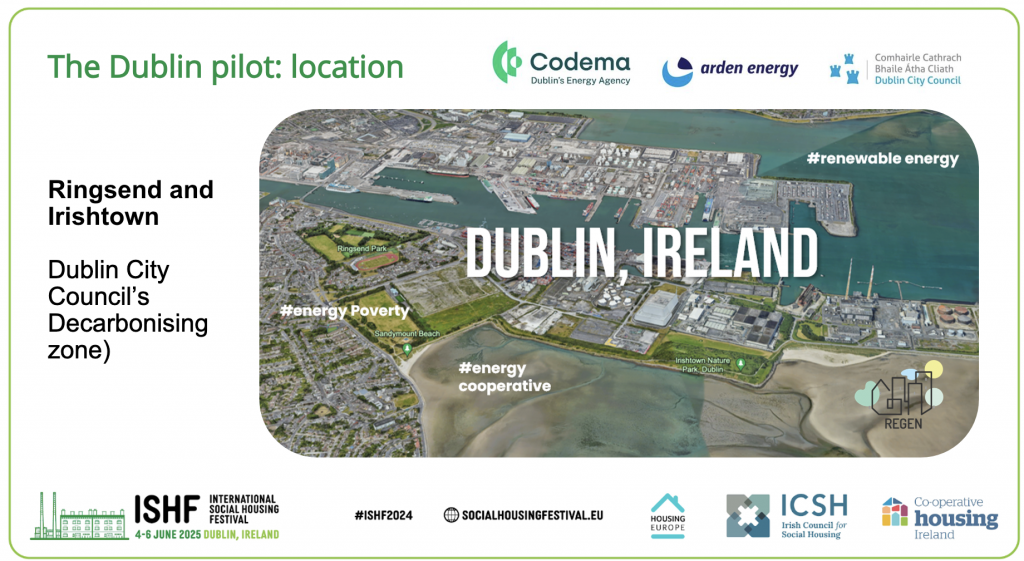
In Dublin, the pilot is located in Ringsend and Irishtown, an area already designated as a Decarbonising Zone by Dublin City Council. Patricia presented how the REGEN Toolbox is being applied locally, with a particular focus on:
- Establishing a Neighbourhood Regeneration Office
- Conducting diagnosis and identifying baseline needs
- Designing targeted interventions
- Using digital tools to foster citizen engagement through living labs
She highlighted the strengths of the local community, including a strong identity and existing grassroots initiatives, while also addressing challenges such as energy poverty and housing pressure due to gentrification.
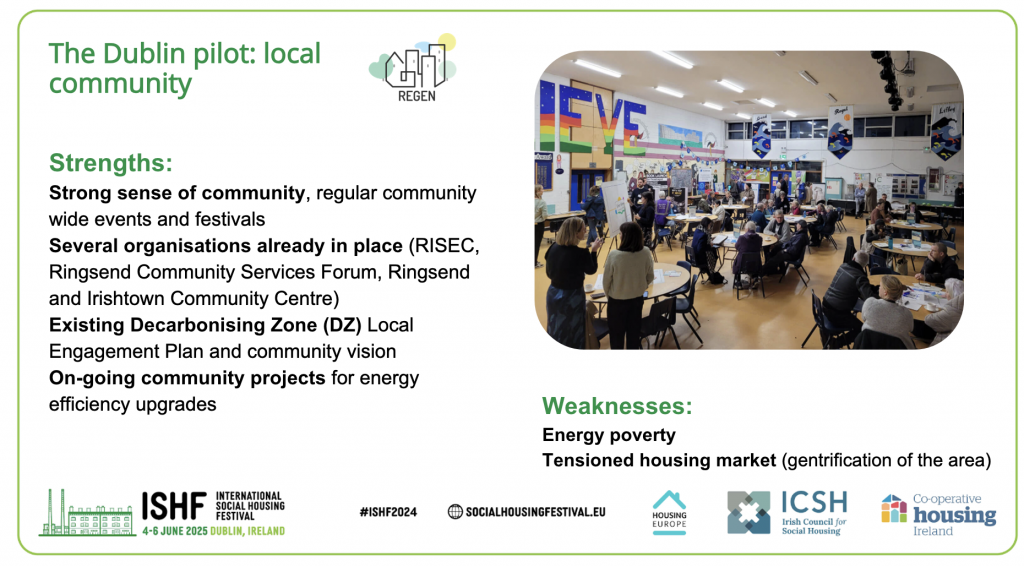
Making digital tools accessible to all
A key part of Patricia’s presentation was dedicated to ensuring accessibility and inclusiveness in the use of digital tools. She showcased two tools being deployed in the Dublin pilot:
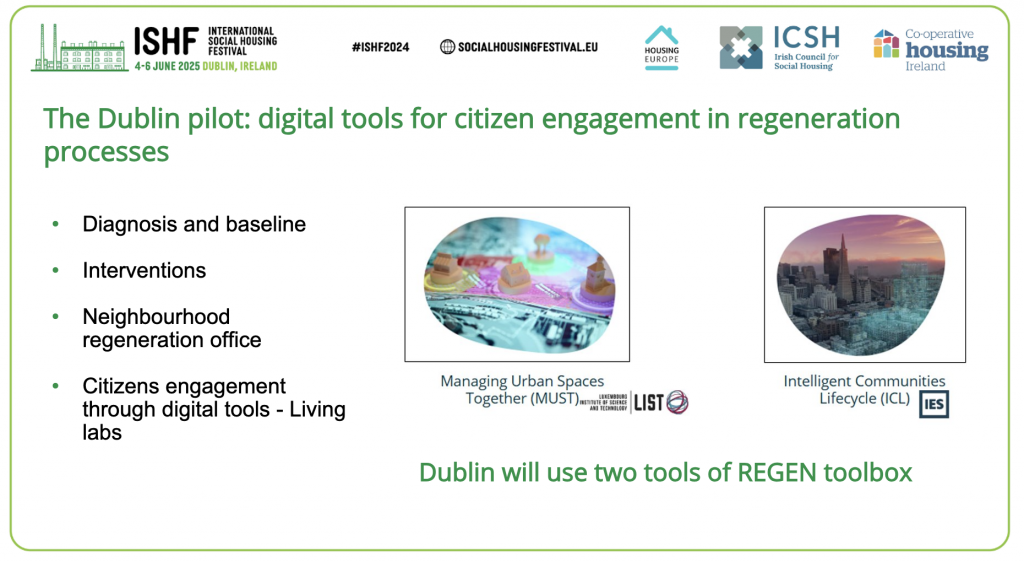
These tools help visualise and model energy and climate-related impacts while actively involving residents in co-designing their future neighbourhood. Patricia tells us more in her own words below.
:
“Digital tools serve as key enablers for engaging citizens in urban planning processes. They allow local authorities and relevant stakeholders as Codema to present urban, environmental, and energy-related interventions in a clearer and more accessible way, making it easier for citizens to understand their location, purpose, and impact within the local context.
On the one hand, the ICL Tool will support the modelling of energy consumption and generation points across the Decarbonising Zone, along with other key data (such as retrofitted buildings and the location of smart meters) which will strongly support the decision making process not only for urban planners but also for citizens at a smaller scale.
On the other hand, the MUST software will facilitate the living lab and community engagement activities by visualising not only the REGEN project interventions but also local assets, such as natural spaces, while simultaneously enabling the collection of feedback from community members”.
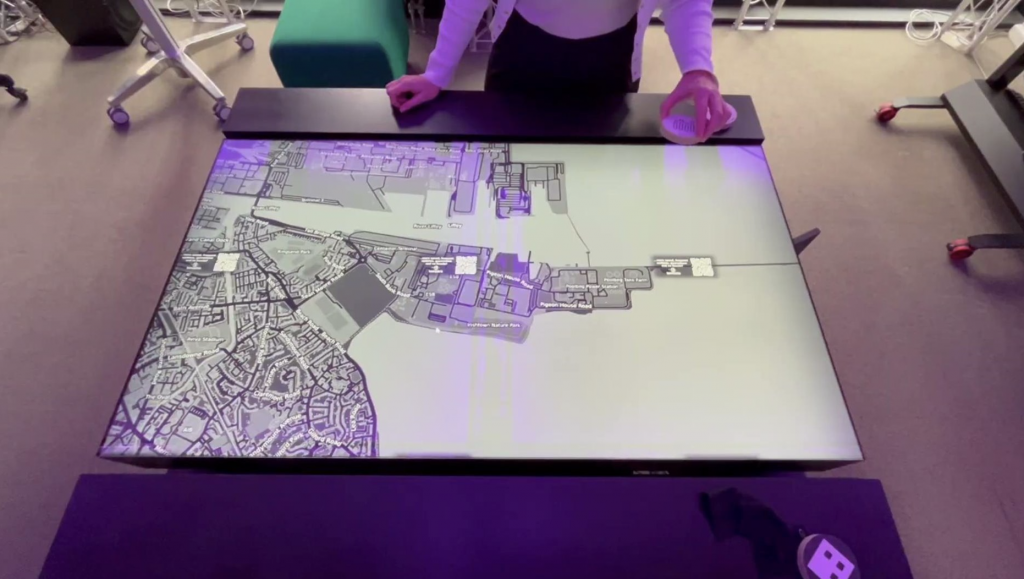
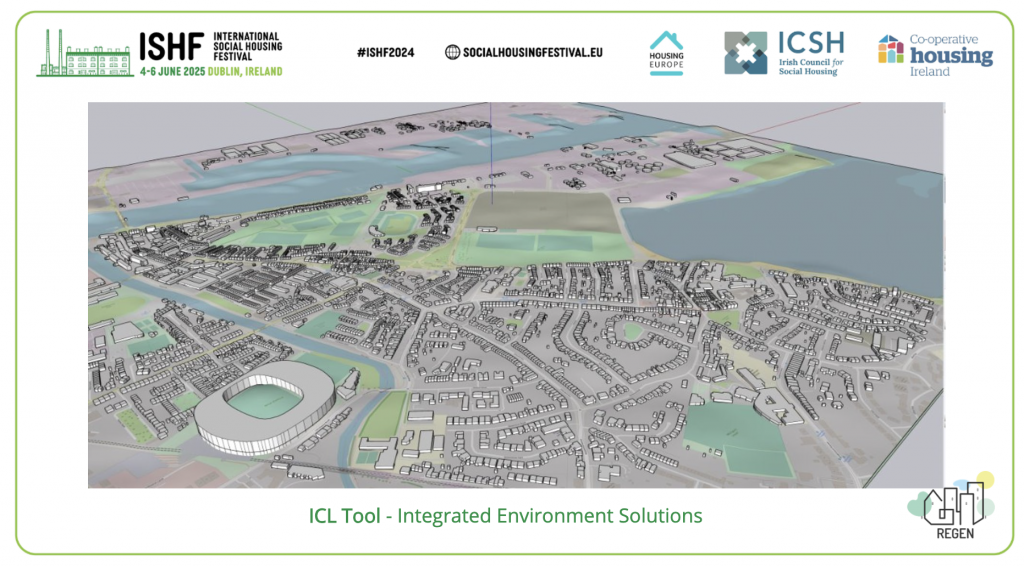
But, how do we ensure that digital tools are accessible for everyone?
“While we have the digital tools, the key question now is: how can we ensure they are accessible to all citizens? To address this, Codema’s Public Awareness and Stakeholder Engagement team is working closely with LIST, REGEN coordinator, to define and integrate accessibility features into the tools.
The first step involved developing a set of ‘Personas’, representing the different types of end-users who may interact with the software, such as elderly individuals, middle-aged citizens, secondary school students, and public servants. Based on these Personas, we have identified the specific accessibility and data visualisation needs of each user group to ensure an inclusive and user-friendly experience”.
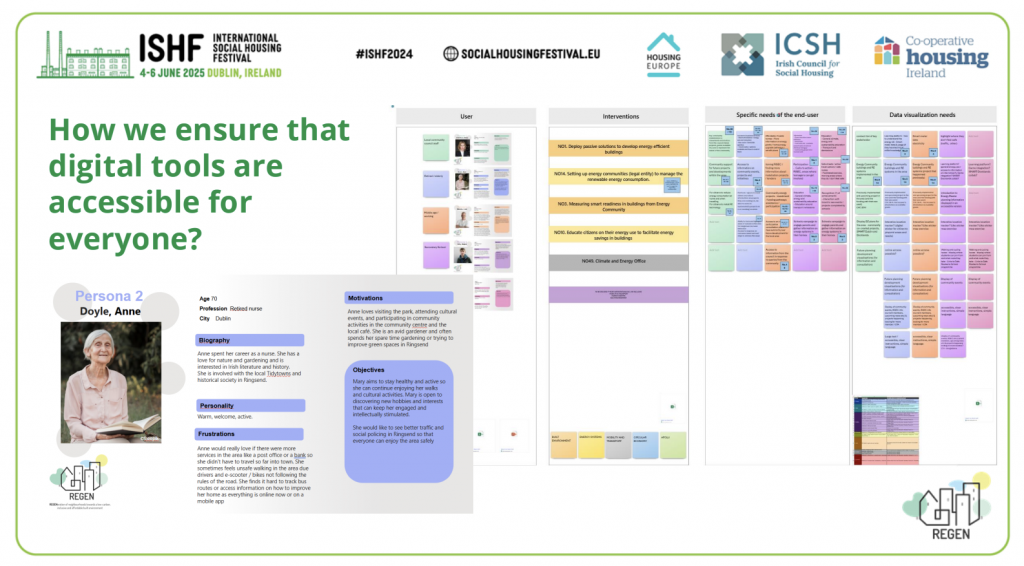
Patricia concludes : “We are already witnessing significant benefits from the use of digital tools in citizen engagement activities, particularly in the areas of energy and climate planning. These tools enhance our ability to clearly communicate complex information in a way that is accessible and meaningful to diverse audiences.
They also play a crucial role in supporting co-creation processes by enabling real-time feedback from community members, while simultaneously facilitating the collection, organisation, and analysis of community ideas.
This two-way interaction not only empowers citizens to actively participate in shaping their local environment but also strengthens the effectiveness of planning decisions. As we move forward, ensuring digital accessibility and tailoring tools to meet the needs of all user groups remains essential to truly inclusive and impactful engagement.”
A strong voice for community-centred innovation
Codema’s presence at the ISHF underscores Dublin’s commitment to innovation in climate and social policy, placing people at the heart of the urban transformation process. Patricia’s intervention was a clear reminder that regeneration is about much more than renovation, it’s about creating long-term value through collaboration, culture, and community empowerment.
Discover the whole presentation here
Many thanks to the organisers of the drOp Final Conference for making this discussion possible and for giving voice to impactful European initiatives.
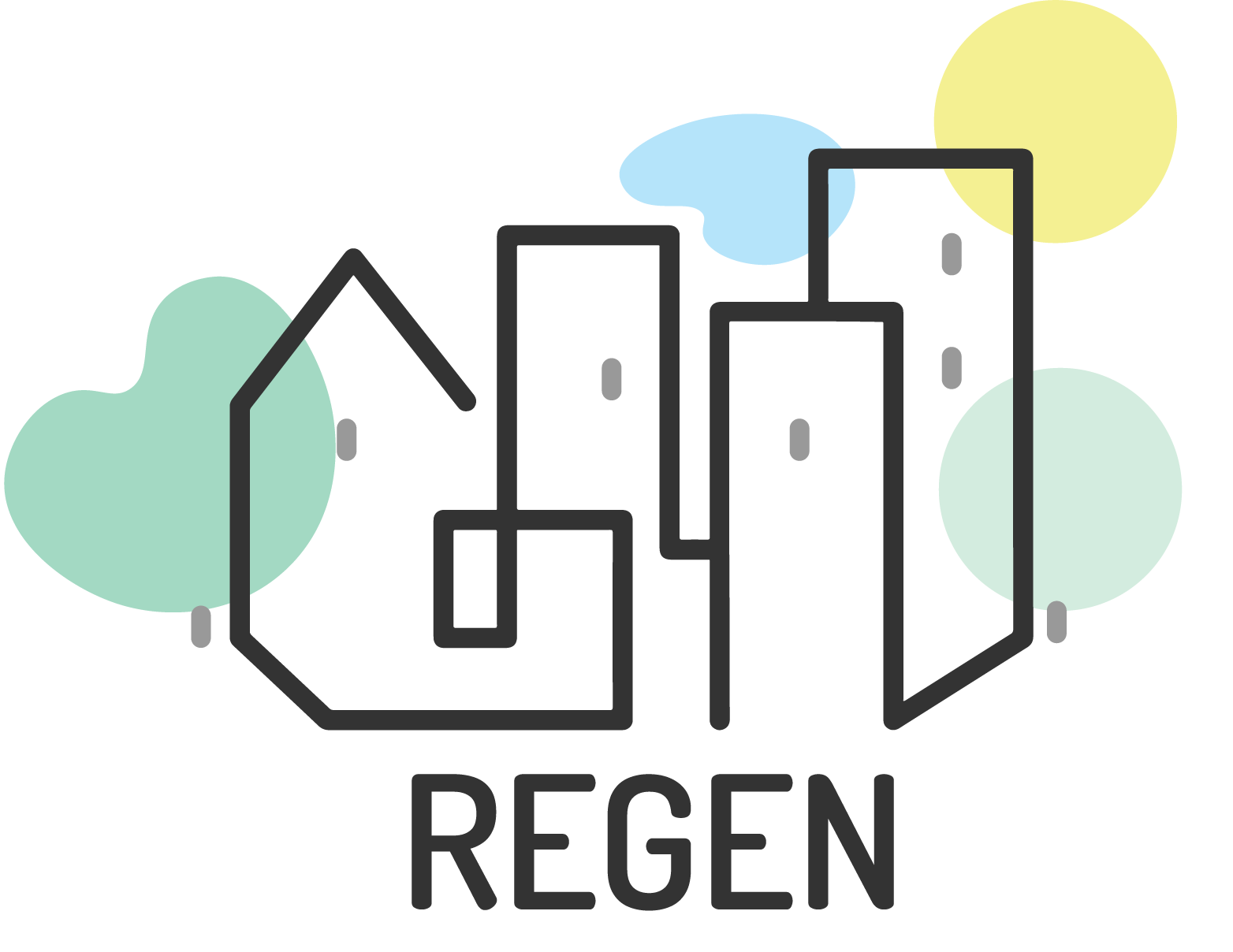
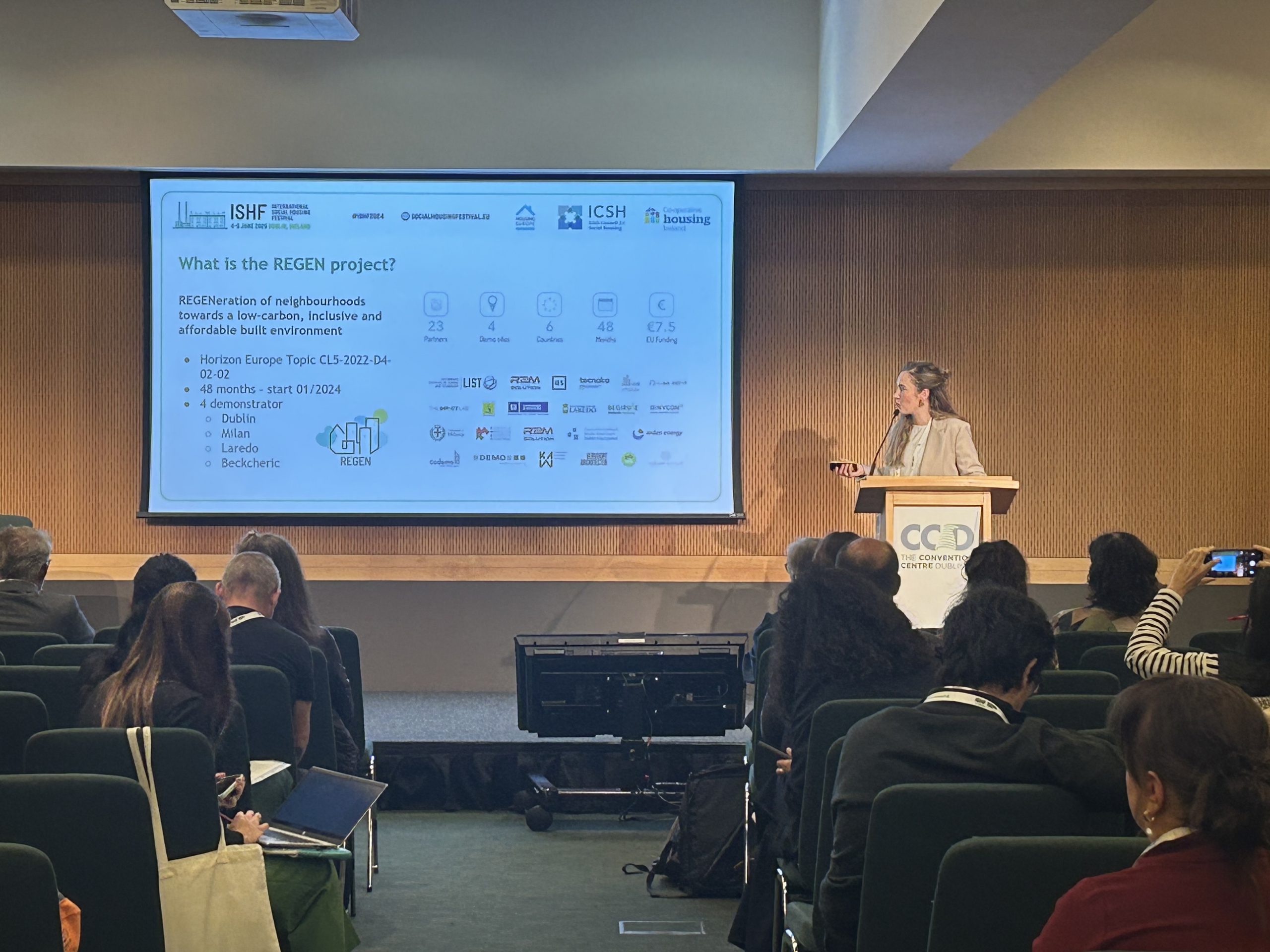
No responses yet